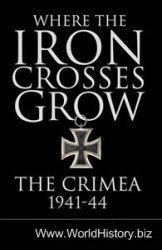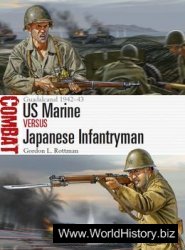The transition from republic to Principate showed as little revolutionary change in social structures as there was in economic life. The fact that the social pyramid was now crowned by the person of the emperor was, of course, significant, and led to adaptations of many kinds. But the social relationships between “high” and “low” remained essentially the same. During the first three centuries of the imperial period, the top of the social pyramid
Consisted of three classes. These had emerged in earlier times, but were further formalized at the beginning of the imperial era. To begin with, there was the ordo senatorius, which Augustus and his successors distinctly separated from the second class, the ordo equester. In order to belong to the ordo senatorius, one had to possess a minimum property of 1 million sestertii and be well born (or obtain an imperial edict that banished the obstacles of a humble origin). Members of this class were supposed to comply with certain rules of conduct: they were not allowed to fight in the arena, for instance, or to marry their liberated female slaves. Sons of senators were automatically admitted into the ordo, but they had to satisfy all the qualifications: this aristocracy was not just based on birth. Members of the ordo senatorius typically went through the following cursus honorum (administrative career): first, some minor official functions in Rome, followed by a term as an officer in the field; subsequently the lower magistratures (beginning with the function of quaestor, which involved inclusion in the Senate), and then the praetor-ship and perhaps the consulate, which could both lead to the position of provincial governor, either in the service of the emperor or of the Senate.
During the imperial period, the Senate on average consisted of 600 members; the ordo of about 2000. Despite its very limited numbers, the ordo knew a certain internal stratification: nobiles who had consular ancestors formed a separate class. On the other hand, there were newcomers: families belonging to the ordo senatorius had a remarkable tendency to die out (possibly because their members deliberately limited the number of children, had no children at all, or remained unmarried). This necessitated the admission of these so-called homines novi. Initially the “new blood” came from Italy, later increasingly from the provinces. The recruitment was, however, selective; during most of the 1st century, only Roman citizens from Latinized provinces were eligible. In due course, very sparingly, a few Greek-speaking individuals were admitted. And not every speaker of Latin could pass muster: despite the intervention of Emperor Claudius, only very few Gauls were admitted to the Senate during the 1st century. It was only by the early 3rd century that the ordo senatorius and the ordo equester mainly consisted of non-Italians.
The ordo equester was the second class. Its membership required a minimum property of 400,000 sestertii, three generations of free birth, and registration in a membership register. Formally, one’s origins did not play any role, but in practice membership became hereditary. This ordo likewise involved established rules of conduct and probably had some tens of thousands of members. It was a rather heterogeneous group, so there was definitely an internal stratification. A small elite of central government officials increasingly set itself apart. The fact that only a minority of the equites had an administrative career explains the smallness of this group. Such a career, or cursus, usually passed through the following stages: one began as an army officer, after which one might become procurator (the financial assistant of a provincial governor, or the governor of a small province). A few were subsequently promoted to one of the so-called “major prefectures”: preafectus vigilum, praefectus annonae, praefectus Aegypti, and praefectus praetorio, respectively, head of the fire brigade and police in Rome, head of the grain supply in Rome, governor of Egypt, and commander of the Praetorian Guard, the imperial elite forces. The ordo equester was a reservoir of new senators: we have just mentioned the ordo senatorius’ need for fresh blood. The ordo equester itself was supplemented by members of the city elites and also
From the ranks of the army. This was especially the case after the 2nd century, when there was increasing social mobility within the lower classes.
The ordines decurionum made up the third class. Every city had its own ordo, which consisted of the members of the city council, the curia or boule—hence the name decuriones or curiales, and in the East, bouleutai. All in all, these ordines decurionum were a very heterogeneous group. If we assume that there were about 2000 cities in the empire, there must have been more than 200,000 decuriones, and, of course, the elite of metropoleis such as Ephesus, Antioch, or Carthage cannot be compared to that of some insignificant provincial town. The second and third class to a certain extent overlap: equites were, as a matter of course, often decuriones, but decuriones were not usually equites. Members of the ordo had to be of good birth, which in practice meant that freedmen (but not their sons) were excluded; they had to be wealthy (we have criteria that vary from 20,000 to 100,000 sestertii), and they had to be morally acceptable (no record of convictions, an honorable profession). Wealth was by far the most important criterion, but being born into a decurial family was, at least de facto, a great help. The importance of property should be seen in the light of euergetism: decuriones were supposed to be the beneficiaries of their community. What has been said about euergetism in the chapters on Hellenistic city life holds good here as well. It may even be said that euergetism rose to unprecedented heights; during the first centuries of the imperial period, the (partly institutionalized) munificence of its elites kept cities afloat. The wealthiest individual in the empire, the emperor, naturally surpassed the members of the elite as a large-scale euergetes within the city of Rome, but also outside of it.




 World History
World History









